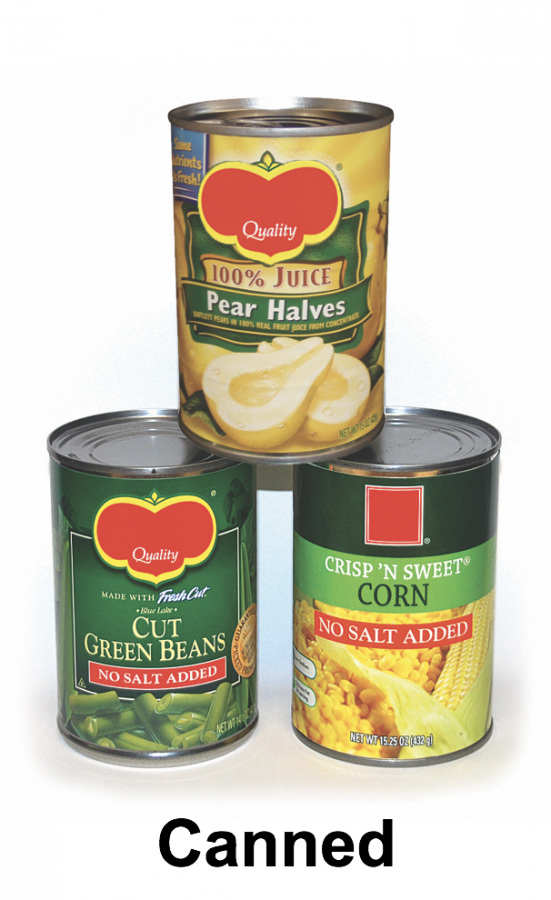
My husband, who grew up in rural North Carolina spent many of his summers with his grandfather. He saw acres of farmland with fresh vegetables including cabbages, collards, green beans, okra, field peas, squash, corn, tomatoes, cucumbers, watermelons, cantaloupes, Muscadine grapes, peaches, etc. He and his grandfather would get up early in the mornings to gather the crops. Some would be used for daily meals while others were canned and frozen by his grandmother, sold at the farmer’s market, and given to needy families. They would do this every day until it was time to replant for the next season.
While many of us don’t have access to a large family garden for fresh fruits and vegetables, there are still many available healthy canned options.
Researchers at Michigan State University found that canned fruits and vegetables are just as nutritious as frozen or fresh. For canned tomatoes in particular, canning improves the content of B vitamins, vitamin E and carotenoids compared to fresh. Fiber in beans becomes more soluble through the canning process, and thus more useful to the human body. Additionally, a nationally represented survey of American adults found that adults and children who frequently eat canned foods (6 or more items over 2 weeks) have healthier eating habits compared to those who eat 1-2 canned food items in the same time period.
Eat the fruits and vegetables you prefer whether canned, fresh, frozen or dried. Canned foods simply make healthy eating easy. Canned fruits and veggies are convenient to have in your pantry for times you can’t get to the store; they can even be kept at work (with a can opener) for a quick lunch or an afternoon snack. Since they don’t expire quickly, you won’t waste money when buying canned veggies – which sometimes happens with fresh produce that goes bad. Here are a few tips when buying canned fruit and vegetables:
Watch for sodium:
Sodium is usually added to canned foods to preserve them. Look for low-sodium, reduced-sodium or no-salt-added labeled foods. Compare the sodium content on the Nutrition Facts label and choose the product with the lowest amount. Drain and rinse canned veggies to reduce sodium even more.
Watch for added sugar: Look for fruit that’s canned in water, its own juice, or light syrup (drain and rinse).
Delicious uses:
- Add drained cans of corn, tomatoes and pinto beans or any other vegetable to low-sodium chicken broth for a super-fast and filling vegetable soup.
- Use a blender, food processor or a fork to smash drained and rinsed garbanzo beans, northern beans, or any beans into a bean dip for baby carrots; add a little lemon juice and garlic powder for some zip.
- Serve canned fruit as a dessert topped with low-fat, no sugar-added yogurt; or top whole grain cereal with canned fruit.
You can feel confident that canned fruits and vegetables are nutritious, safe and full of flavor. Fill up your pantry with your favorite canned produce to help you prepare nutritious, quick everyday meals for your family more often while saving time and money.
ENJOY!!
Stephanie
Sources: http://www.heart.org/HEARTORG/GettingHealthy/NutritionCenter/HealthyCooking/Fresh-Frozen-or-Canned-Fruits-and-Vegetables-All-Can-Be-Healthy-Choices_UCM_459350_Article.jsp#.Vp0xBVMrJmA
http://www.fruitsandveggiesmorematters.org/canned-fruits-and-vegetables-are-good-for-you